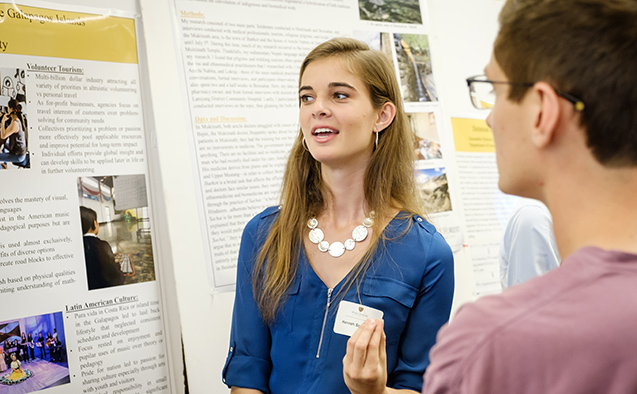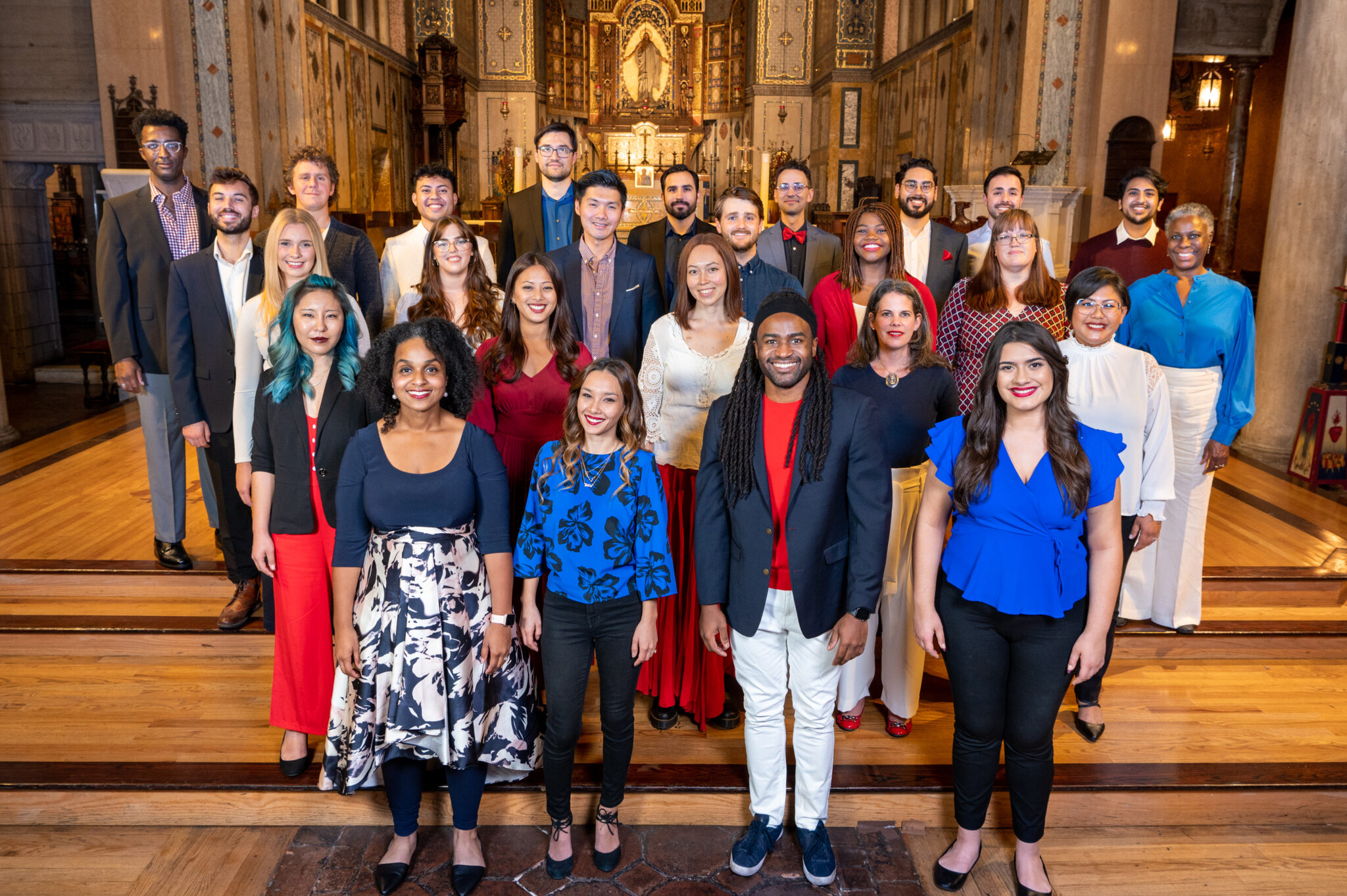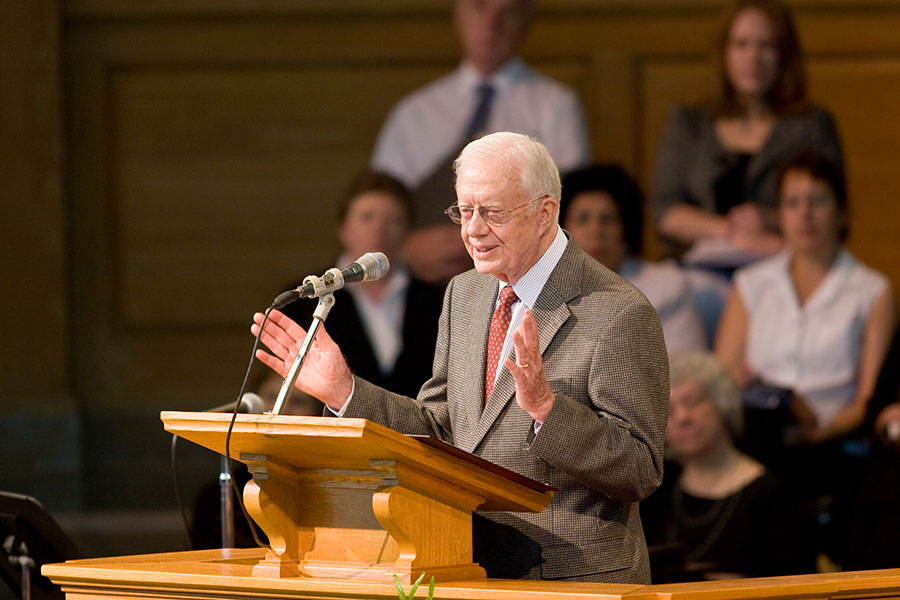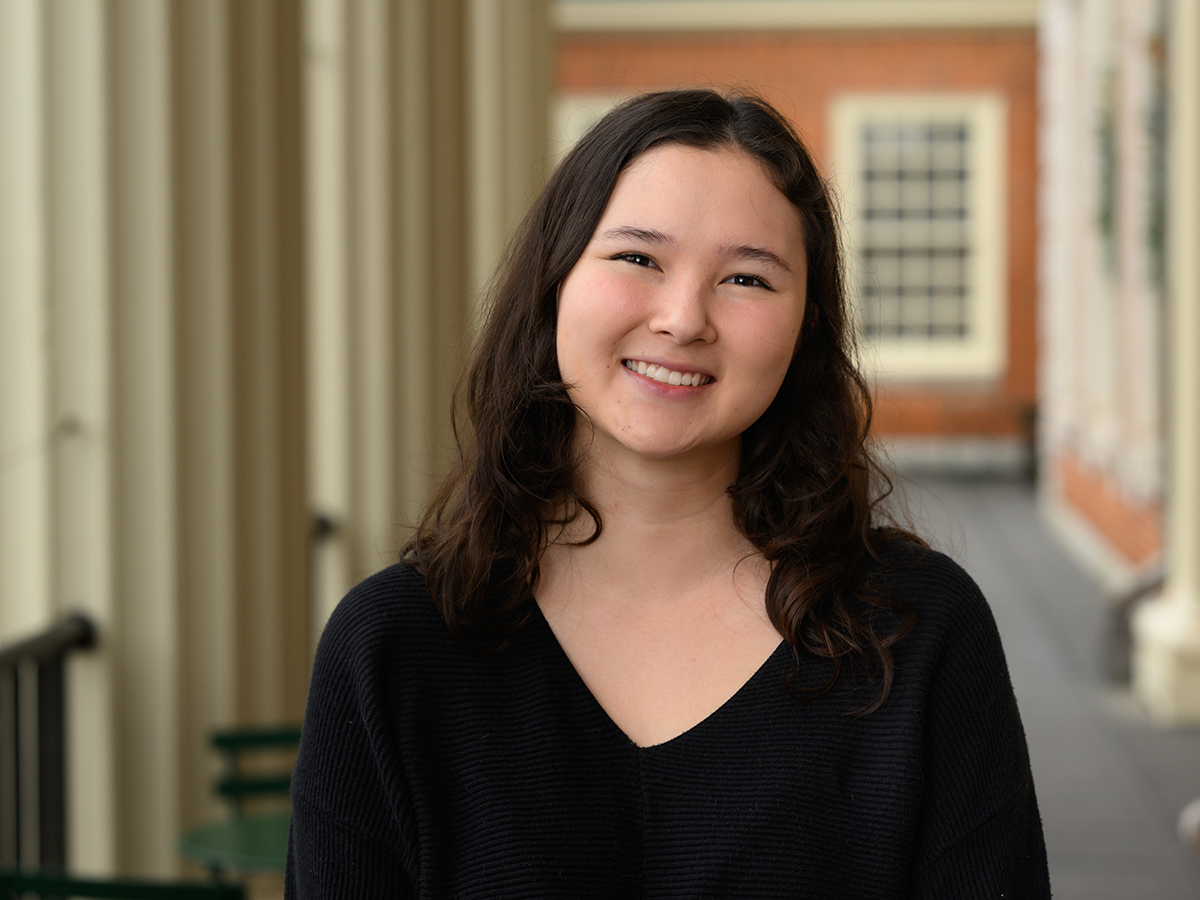WFU student-researcher wins prestigious Goldwater Scholarship
Math modeling may help inform response to COVID-19 pandemic

Hannah Scanlon, a junior applied mathematics major from Raleigh, N.C., has been named a 2020 Barry S. Goldwater Scholar. Scanlon was selected as one of 396 college students from across the U.S. and is one of 12 in North Carolina to receive the award for the 2020-21 academic year.
She was selected for the Goldwater Scholarship based on academic merit from a field of more than 5,000 natural sciences, mathematics and engineering students from 461 institutions.
Her research in the field of mathematical biology focuses on the ways in which mathematical modeling can be used to answer questions in biology, public health and medicine.
“I am honored to have been selected as a Goldwater Scholar and proud to represent Wake Forest along with the many Wake Forest students who have been selected as scholars in years past.” Hannah Scanlon ('21)
Scanlon, who is also a Stamps Scholarship recipient, explores the spread of infectious diseases with Wake Forest mathematics professor John Gemmer. Though the research was started more than a year ago, she says it has become a powerful area of mathematics during these times. “We are adapting our modeling assumptions to more closely reflect the behaviors of COVID-19 and human responses to this pandemic.”
Classical models tracking the spread of infectious disease, which are often referenced in the media, assume people do not adjust their behavior depending on the state of the disease, Gemmer explains. “However, we can see in the case of the COVID-19 pandemic, social distancing and stay at home mandates are effective for slowing its spread. Hannah’s model allows people to break or pause connections with others depending on the state of the disease. This model is likely to help better inform policymakers on the best course of action to ‘flatten the curve.’ Given Hannah’s dual training in applied mathematics and biology, she is well-positioned to tackle this project. Moreover, she has a strong work ethic and dedication to science that is rare in someone so young.”
For another area of her research, Scanlon connected with national experts at the forefront of clinical glaucoma research, including Julia Arciero, a mathematician at Indiana University – Purdue University Indianapolis, and doctors in the Glick Eye Institute. The team uses mathematical modeling to study the effects of blood flow and oxygenation on glaucoma.
“While glaucoma is the second leading cause of blindness worldwide, there is still much we do not know about the disease and which cannot be determined through clinical observations,” says Scanlon.
A Wake Forest presidential scholar in oboe performance, Scanlon plays in the University orchestra, wind ensemble and woodwind quintets. She also plays piano and has accompanied Wake students in their senior recitals. The discipline and the value of perseverance with her music serve her equally well in mathematics and in her research.
Her freshman year, Scanlon traveled to Costa Rica and the Galapagos Islands for a service and research project to explore music education in underprivileged communities. “I spent much of my trip feeling like a failure for not having found what I was looking for and not contributing as much to the programs as I had hoped I would. It was not until months after I returned home that I realized I had, in fact, learned a lot about the benefits and drawbacks to volunteer tourism, linguistic differences surrounding musical communication, and the impact of culture and environment on music education. While my research now looks much different than it did that summer, I have learned to remain open to changes in my approach as well as surprises in the content of my results.”
Scanlon plans to pursue a PhD in applied mathematics or mathematical biology after graduation.
Categories: Awards & Recognition, Experiential Learning
Wake Forest News
336.758.5237
media@wfu.edu
Meet the News Team
Wake Forest in the News
Wake Forest regularly appears in media outlets around the world.




